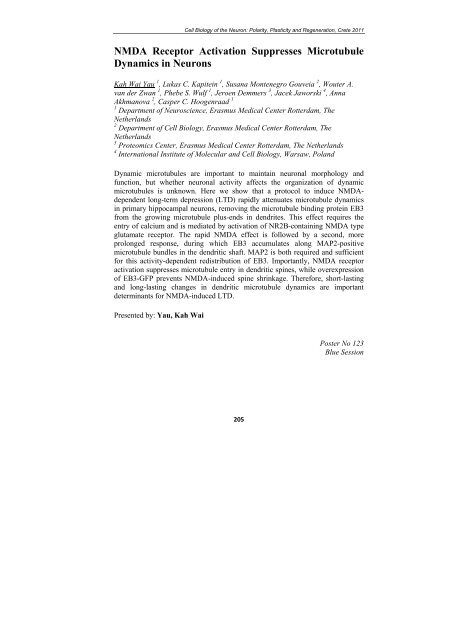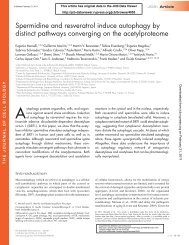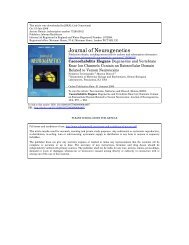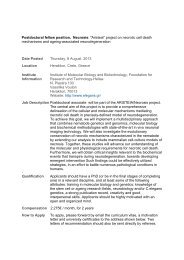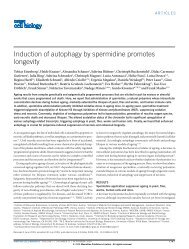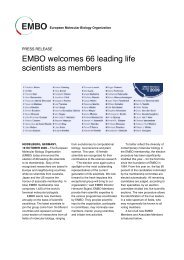CELL BIOLOGY OF THE NEURON Polarity ... - Tavernarakis Lab
CELL BIOLOGY OF THE NEURON Polarity ... - Tavernarakis Lab
CELL BIOLOGY OF THE NEURON Polarity ... - Tavernarakis Lab
Create successful ePaper yourself
Turn your PDF publications into a flip-book with our unique Google optimized e-Paper software.
Cell Biology of the Neuron: <strong>Polarity</strong>, Plasticity and Regeneration, Crete 2011<br />
NMDA Receptor Activation Suppresses Microtubule<br />
Dynamics in Neurons<br />
Kah Wai Yau 1 , Lukas C. Kapitein 1 , Susana Montenegro Gouveia 2 , Wouter A.<br />
van der Zwan 1 , Phebe S. Wulf 1 , Jeroen Demmers 3 , Jacek Jaworski 4 , Anna<br />
Akhmanova 2 , Casper C. Hoogenraad 1<br />
1 Department of Neuroscience, Erasmus Medical Center Rotterdam, The<br />
Netherlands<br />
2 Department of Cell Biology, Erasmus Medical Center Rotterdam, The<br />
Netherlands<br />
3 Proteomics Center, Erasmus Medical Center Rotterdam, The Netherlands<br />
4 International Institute of Molecular and Cell Biology, Warsaw, Poland<br />
Dynamic microtubules are important to maintain neuronal morphology and<br />
function, but whether neuronal activity affects the organization of dynamic<br />
microtubules is unknown. Here we show that a protocol to induce NMDAdependent<br />
long-term depression (LTD) rapidly attenuates microtubule dynamics<br />
in primary hippocampal neurons, removing the microtubule binding protein EB3<br />
from the growing microtubule plus-ends in dendrites. This effect requires the<br />
entry of calcium and is mediated by activation of NR2B-containing NMDA type<br />
glutamate receptor. The rapid NMDA effect is followed by a second, more<br />
prolonged response, during which EB3 accumulates along MAP2-positive<br />
microtubule bundles in the dendritic shaft. MAP2 is both required and sufficient<br />
for this activity-dependent redistribution of EB3. Importantly, NMDA receptor<br />
activation suppresses microtubule entry in dendritic spines, while overexpression<br />
of EB3-GFP prevents NMDA-induced spine shrinkage. Therefore, short-lasting<br />
and long-lasting changes in dendritic microtubule dynamics are important<br />
determinants for NMDA-induced LTD.<br />
Presented by: Yau, Kah Wai<br />
205<br />
Poster No 123<br />
Blue Session


